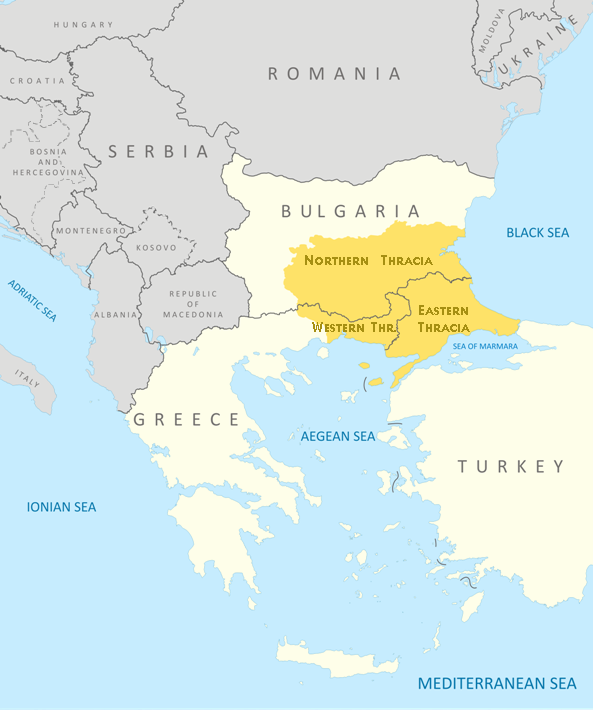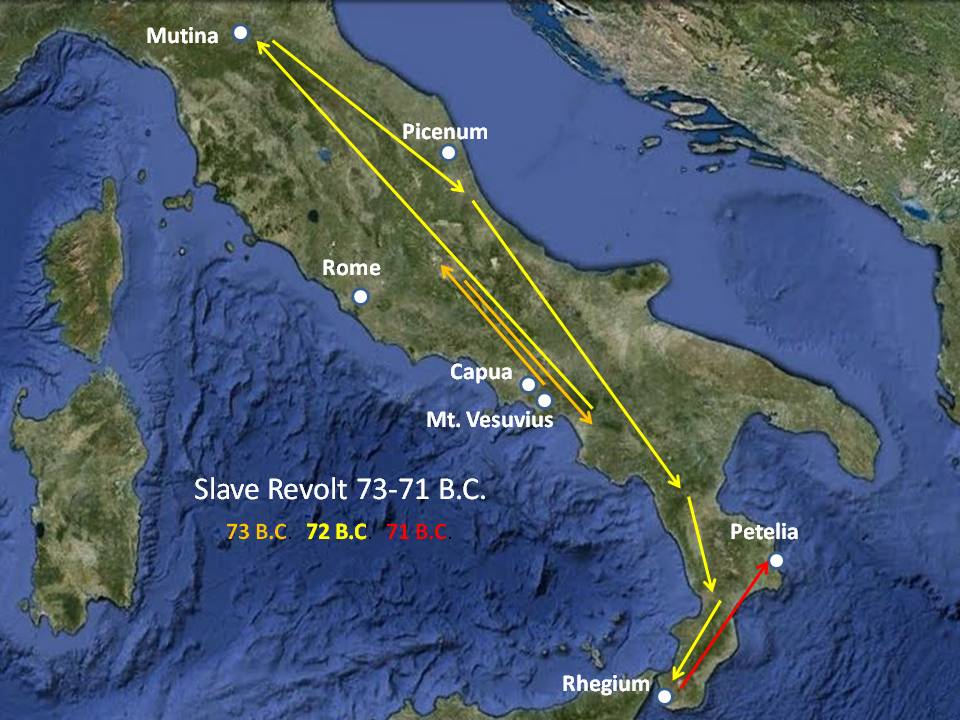During the Roman Republic's Third Servile War (73–71 BC), a gladiator named Spartacus lead an army of escaped slaves in revolt against Rome. Spartacus was a Thracian from an area in Eastern and South-eastern Europe.
This revolt lasted for nearly 3 years inside Rome's home territory of Italia. The Revolt ended when the Roman senate sent 8 legions under Marcus Crassus against Spartacus which eventually trapped his army and defeated it in Southern Italy.
Plutarch in the Life of Crassus claims the motivation for the "War of Spartacus" was to escape captivity. If we look at the path of Spartacus's army:
We see that in the second year of the revolt Spartacus reached his northern most point, the Roman town of Mutina. Here Spartacus was confronted by by an army of 10,000 soldiers, lead by Gaius Cassius Longinus who were attempting to block his path north. Spartacus defeated this army but then turned south anyway.
My Question: Why did Spartacus turn South at Mutina? Why didn't he continue North? North towards Thrace. North the only foot path out of Rome.
Comments
From TomasBy: And Thrace is not north of Italy. It would be a bit of a hike to get there.
The only way to walk to Thrace from Mutina is to head North. The Italian Peninsula is about 600 miles long and Sparticus's army nearly traversed it twice. From the city of Rome to Northern Thrace(Bulgaria) is roughly 1200 miles. Likewise inside Rome Spartacus's army survived another year and a half after turning South at Mutina. Given the distance Spartacus's army covered Thrace appears to be a realistic goal.
From TomasBy: Towards the end of the 1st century BC Thrace lost its status as a client kingdom as the Romans began to directly appoint their kings." (wiki)
71bc is closer to the beginning of the first century BC than it is to the end. Under the Roman Empire Thrace was independent and became a province during the reign of Vespasian (69-79 A.D.). Roman Empire - Thrace

